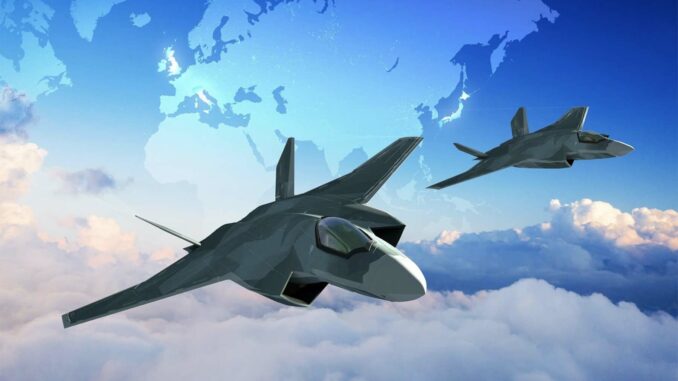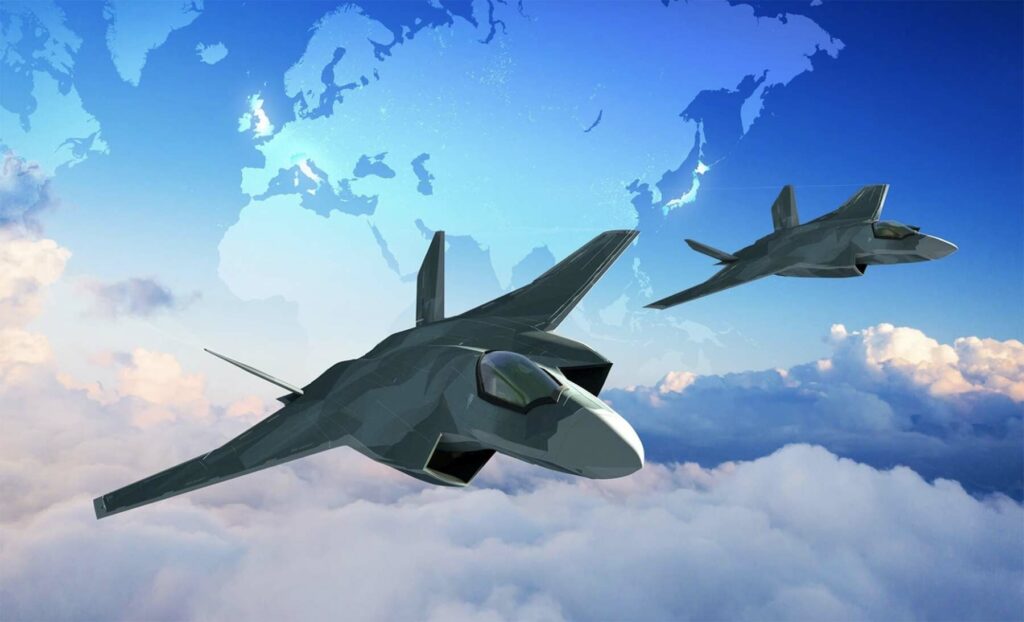
The UK’s Global Combat Air Program (GCAP), a sixth-generation fighter program, is facing major difficulties with the official withdrawal of Sweden. This departure underlines the growing challenges and rivalries within European air defense projects, while technical-industrial divergences also threaten the Franco-German-Spanish FCAS (Future Combat Air System) program.
Background to Sweden’s withdrawal from the GCAP
Sweden has officially announced its withdrawal from the UK-led GCAP program, ending its collaboration with the UK and Italy in the development of futuristic air combat technologies. This decision, confirmed at the 2023 International Fighter Conference in Madrid, highlights the challenges of collaboration in major defense projects.
British-Italian-Japanese collaboration in doubt
The GCAP project, initially a collaboration between the UK, Italy and Sweden, is now in doubt, especially since Japan has joined to develop prototype engines and radars for their respective Tempest and F-X fighter projects. Sweden’s withdrawal could call into question the future and direction of this ambitious program.
The technical and industrial challenges of the Franco-German-Spanish FCAS programme
The FCAS program, jointly led by France, Germany and Spain, is also facing difficulties, mainly due to diverging technical and industrial visions between France and Germany. These differences underline the challenges inherent in international collaboration on complex, high-tech defense projects.
Impact of the Swedish withdrawal on the Tempest project
Sweden’s withdrawal from the Tempest project, a key component of the GCAP, could slow down its development. Sweden had joined the project in July 2019, but its departure highlights the difficulties of collaboration and technology sharing in multinational defense projects.

The uncertain future of the Franco-German-Spanish FCAS
Tensions between FCAS partners, notably over technology and work-sharing arrangements between Airbus and Dassault Aviation, as well as Franco-German diplomatic differences, could jeopardize the project’s progress. These differences highlight the issues of sovereignty and independence in the European defense sector.
Implications for European defense
The apparent dislocation of sixth-generation air defense projects in Europe could have major implications for the continent’s security and defense autonomy. It raises questions about Europe’s ability to develop advanced air defense systems independently, in the face of external powers such as the USA and China.
Final thoughts and future prospects
Sweden’s withdrawal from the GCAP and the challenges faced by the Franco-German-Spanish FCAS signal a period of reassessment and potentially restructuring for European air defense projects. These developments could redefine air defense alliances and collaborations, with possible implications for security dynamics in Europe and beyond.
The landscape of sixth-generation fighter projects in Europe is in a state of flux, with Sweden’s official withdrawal from the GCAP and turbulence within the FCAS. These events highlight the challenges of multinational collaboration in complex defense projects, and raise questions about the future of European defense autonomy. As the UK, Italy and potentially Japan continue to develop the GCAP, and the future of the FCAS remains uncertain, Europe must navigate an evolving air defense landscape, marked by issues of sovereignty, technology and security.
War Wings Daily is an independant magazine.